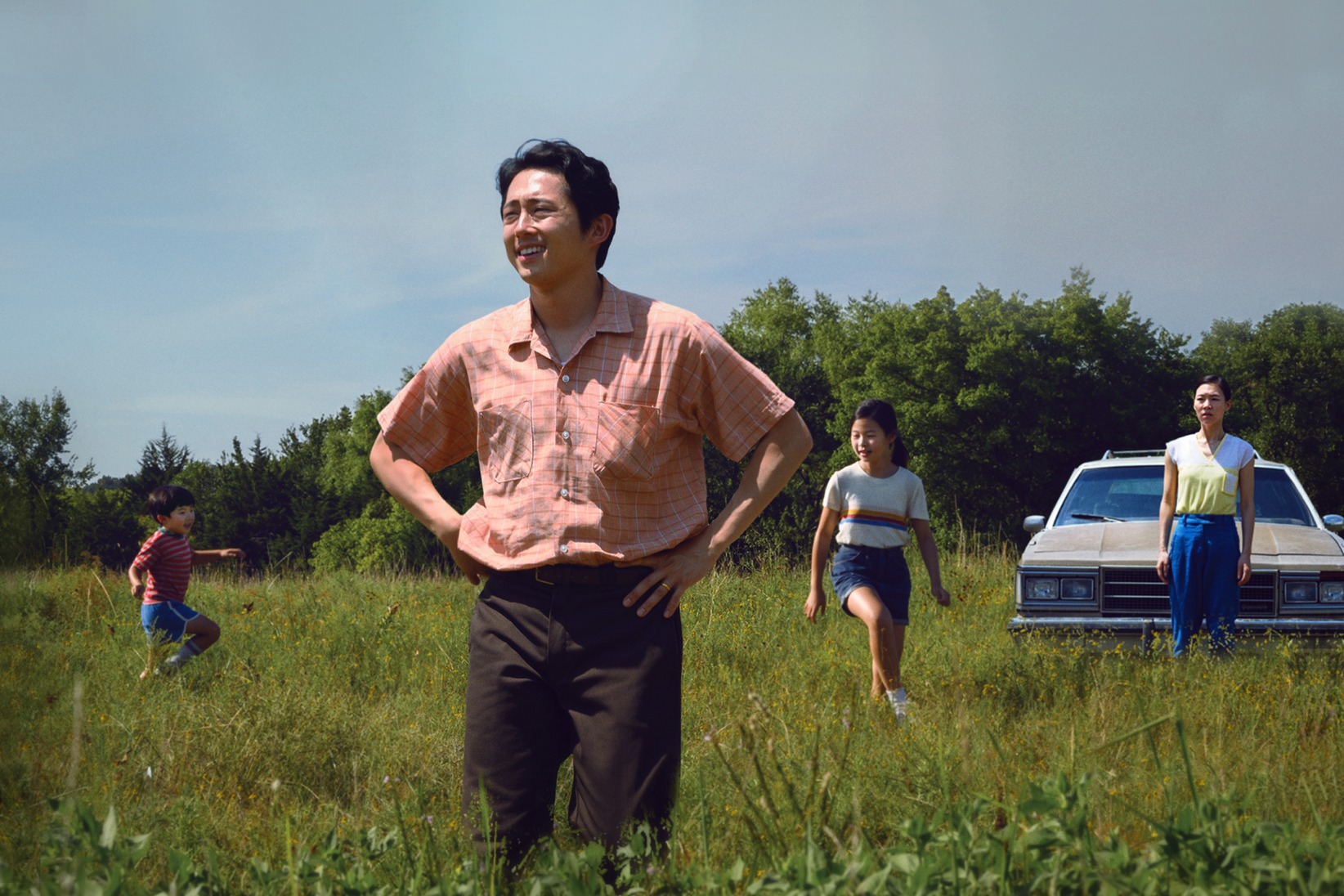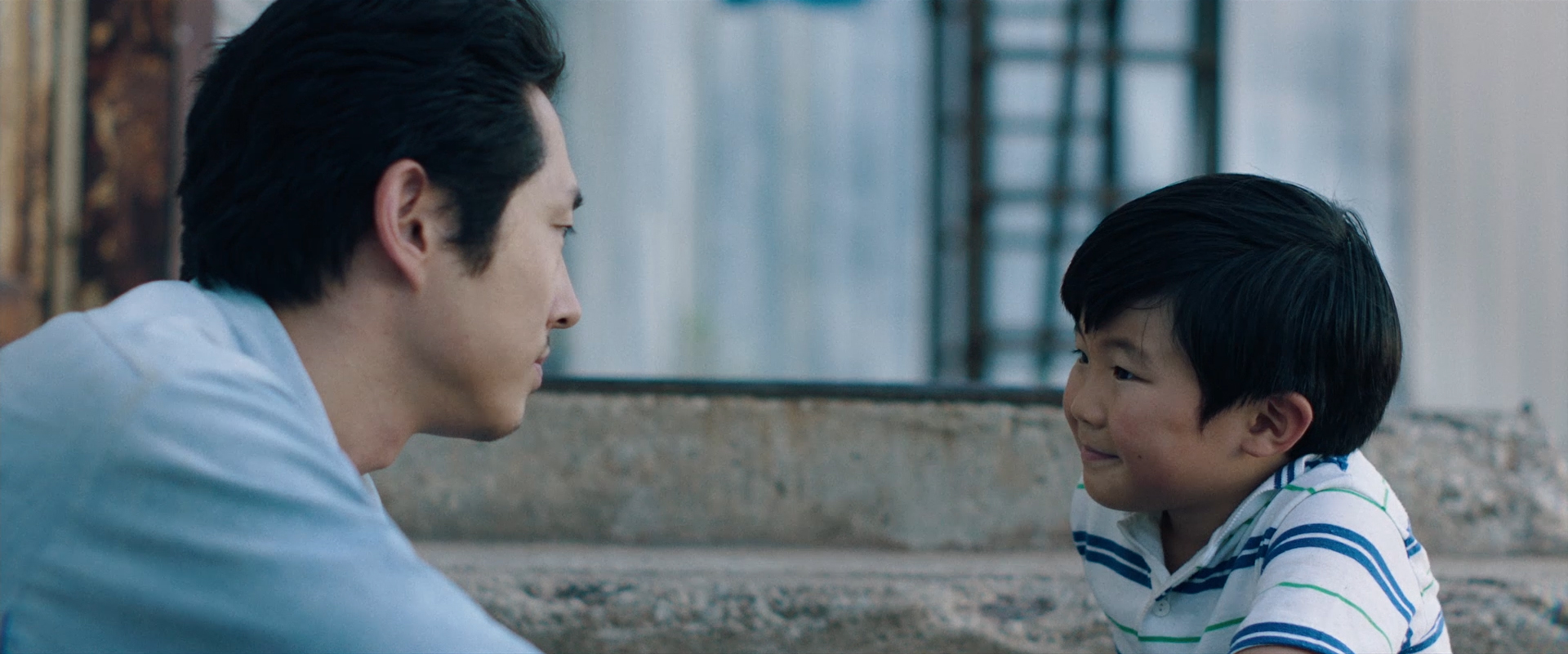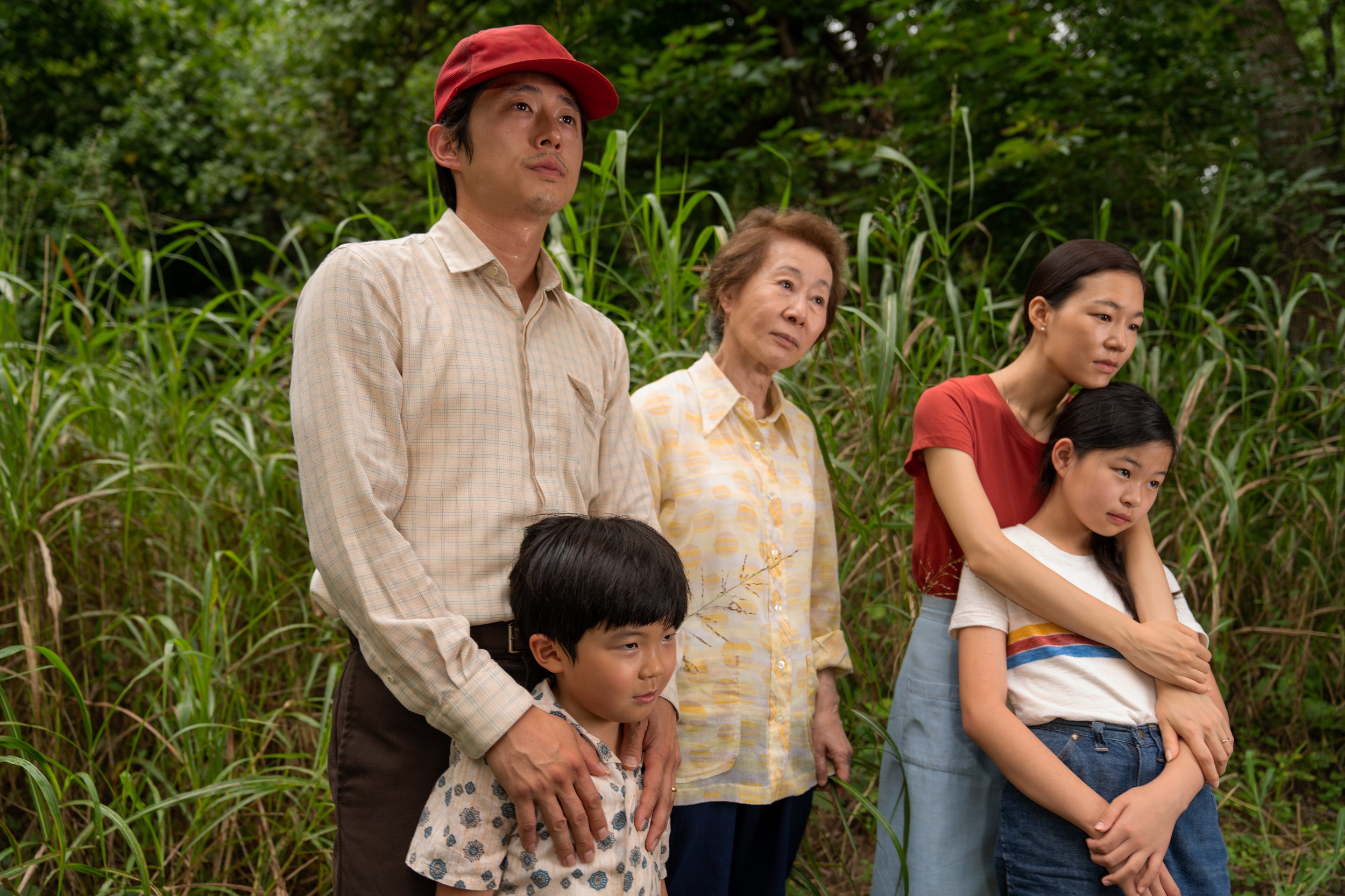When Steven Yeun first read the script for the film Minari, he knew he had to be a part of it.
The new feature film tells the story of the Yis, a family of Korean immigrants that moves to rural Arkansas to start a farm in the 1980s. It’s based on the childhood memories of writer-director Lee Isaac Chung.
Yeun — who starred in AMC’s hit zombie series The Walking Dead, Netflix’s Okja and Korean thriller Burning — plays the role of Jacob Yi, a young father with a dream to transform his fledgling farm into a viable business.
Yeun’s own family immigrated to the U.S. in the late ’80s, and he said playing the character of Jacob Yi helped him better understand his parents’ generation. He called that process “in some ways painful, but also beautiful and terrifying.”
The Korean American actor and Second City alum joined Reset to talk to WBEZ’s Susie An and Esther Yoon-Ji Kang about his Oscar-contending performance, which critics have heralded as the best of his career.
A24 is holding virtual screenings of Minari through Feb. 25.
This interview has been edited for brevity and clarity.

What drew you to be part of this film?
When I read the script, Isaac had written something so true and so honest and very confident in its own point of view. I hadn't read a script like that, to be quite honest with you.
I think as a Korean American actor, sometimes you do get to see scripts that are talking about our life and the unique spaces that we inhabit and our stories. But a lot of the times, those are trying to define themselves through the gaze of the majority or trying to justify themselves through their own suffering by the hands of the majority or through oppression. There was something so refreshing about reading a script that was just void of all those things.
You've said in previous interviews that there was a lot of anxiety when you first considered playing the role of Jacob. What scared you about playing his character?
I think it was the fact that I had to unpack and unearth and kind of dismantle a lot of the projections and images and ideas that I had about my own parents and that particular generation and how I understand them. I had to realize that it was from my own gaze and that to inhabit that character, I needed to understand their humanity. And, while it would have been nice if it was just like, “Understand the humanity of this character,” that character also deeply reflected the way that I view my own father.
That was in some ways painful, but also beautiful and terrifying. I also think we have a community that hasn't been seen as clearly or been able to tell stories from our perspective. So maybe I put it upon myself, a pressure. But, ultimately, I had to let go of all those things and just give in to the individual nature of this character and this film. And that's kind of where I found my freedom.

What came naturally to you in playing the role of Jacob?
I think the thing that came naturally was my understanding of how we miscommunicate love to our own children. I'm learning through the process of my own fatherhood, and I think I'm less encumbered than my dad's generation was.
So part of the unpacking for me was understanding and rationalizing how my parents and I would miss each other and miscommunicate love to each other — that my dad, and maybe our fathers in general of that generation, were taught that duty and responsibility and function were the definition of their love for you.
I came over when I was four and I knew a life with them, connected to them. Then I was brought to a new place that uprooted that feeling. And then it was just a slow separation through culture and language and understanding that happened underneath my own reality that I didn't even process until I got of age. And I was like, ”Hey, I don't know my parents, I don't know my parents all.” And to reconnect to that was a trip.
Did your parents watch the film? How did they react?
Yeah, my parents actually came to Sundance [Film Festival].
It was terrifying. My dad sat next to me and we sobbed at the end of it. We kind of just embraced and really, really cried. It was an unspoken thing. It was a thing that I could never verbalize, even over time getting better and better at the Korean language. It was a feeling that I was trying to reconnect to.
[The film] didn't necessarily bridge all the divides, but it started the conversation by acknowledging the separation.
Director Lee Isaac Chung has said that this film is for everybody. But Minari is still a unique Korean American immigrant story. What did you learn about yourself and your Korean American identity?
There was something about honoring the humanity of the generation prior to us, about seeing them as the full human beings that they are. That allowed me to let go a lot of the trauma of the disconnection or the shame or the anger or any of the feelings that are associated with not feeling full in this country sometimes. And it was cool to humanize that generation in their flaws and all so that I might be able to move on and then just speak from my own place.
There's something about the way that we're forced to define ourselves a lot of the time that really confuses us. We live this hyphenate life of Koreanness or Americanness. Oftentimes I think we describe ourselves as not fitting in both, but trying to hold our own in both. And I wonder if that notion is the thing that's holding us back. That maybe we can just speak from this third culture, this own intrinsic place that we inhabit and speak freely and confidently from.

GUEST: Steven Yeun, star of Minari and Second City alum
Stephanie Kim is a producer for Reset. Follow her @StephaniehnKim. Susie An is a reporter for WBEZ. Follow her @soosieon. Esther Yoon-Ji Kang is a reporter for WBEZ’s Race, Class and Communities desk and WBEZ’s Education desk. Follow her on Twitter @estheryjkang.



